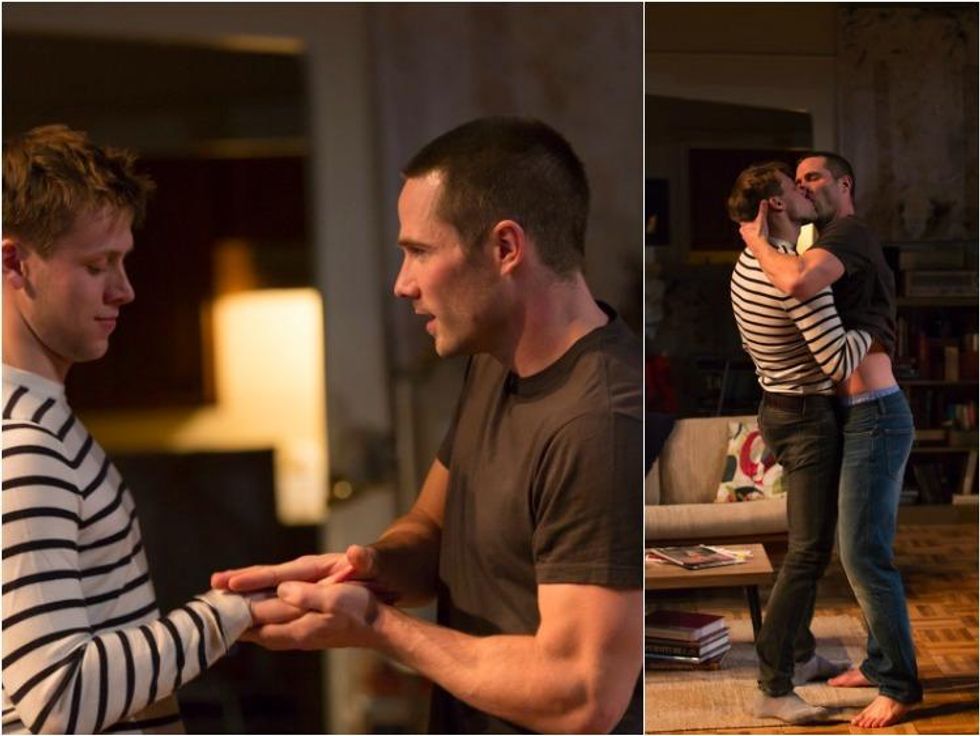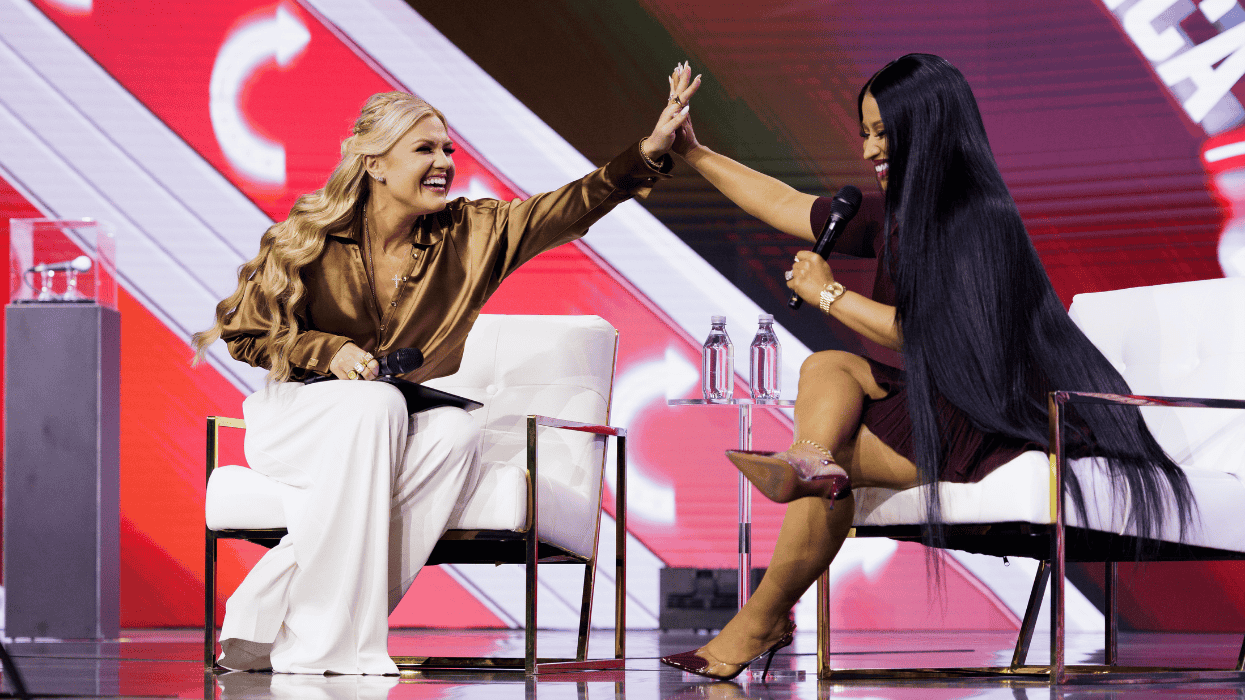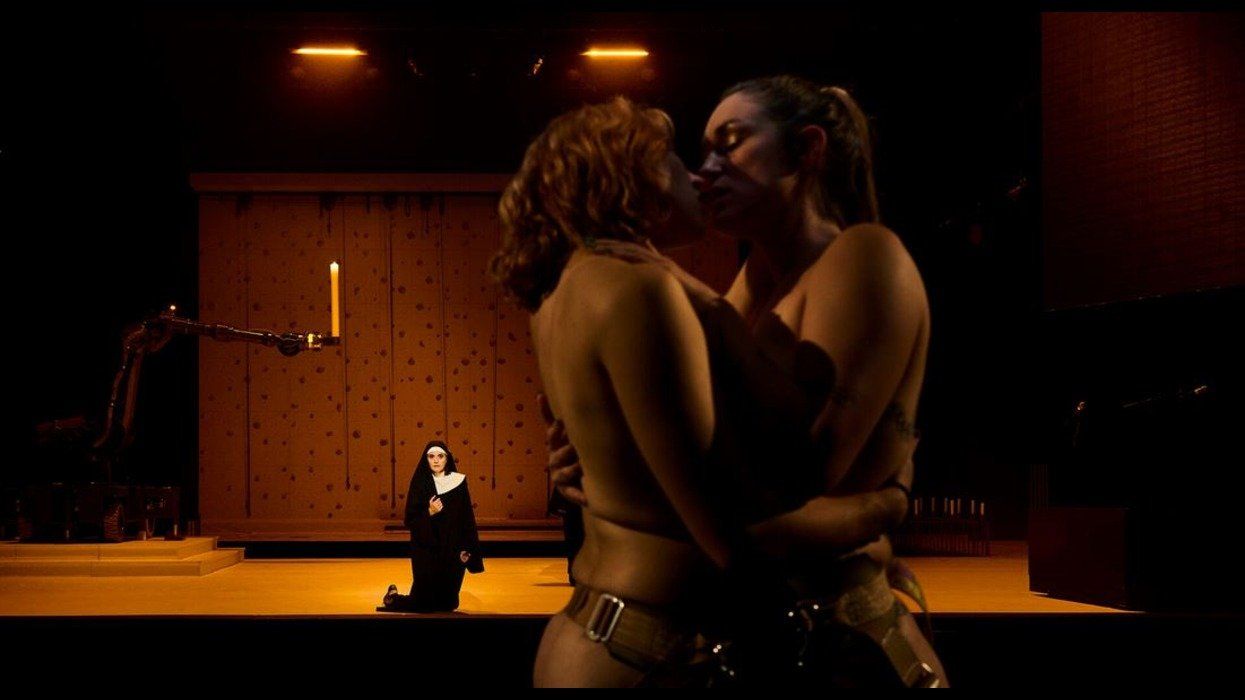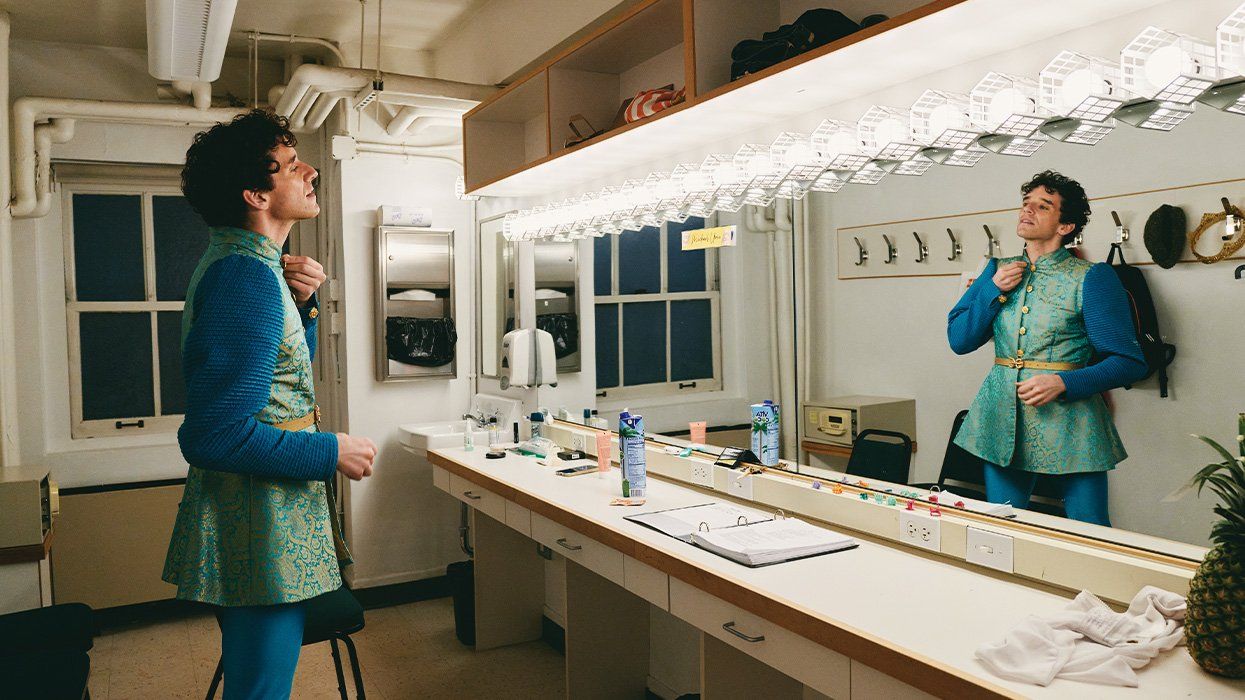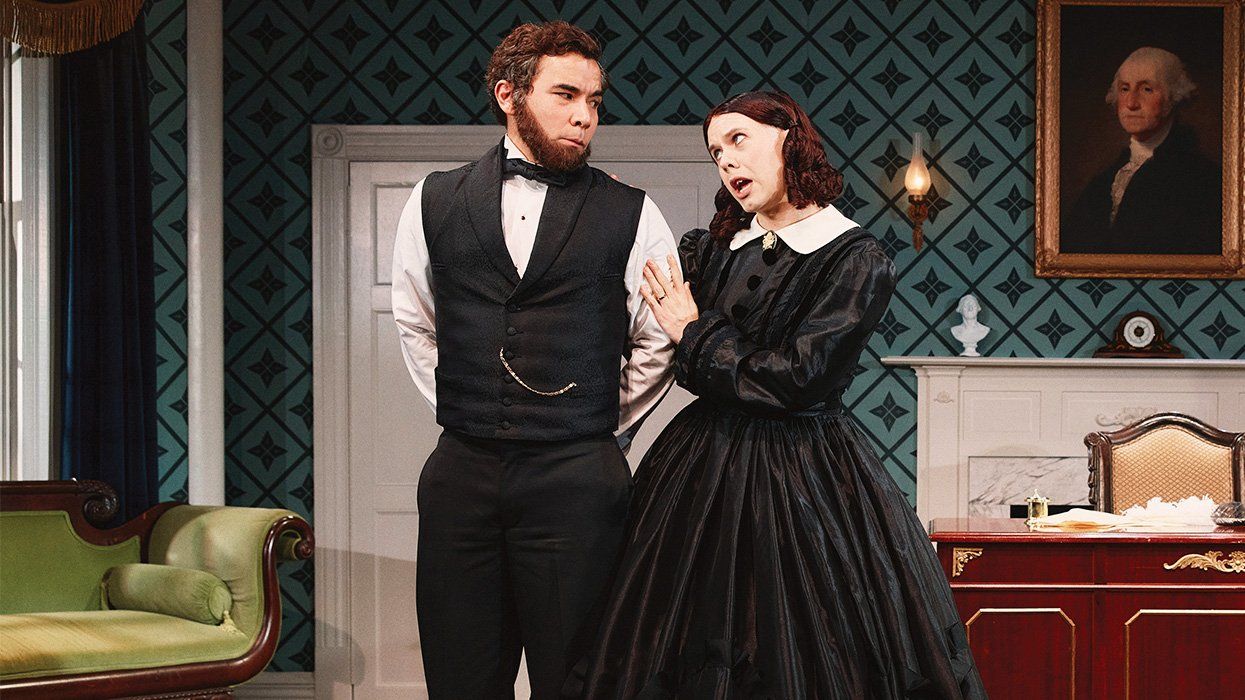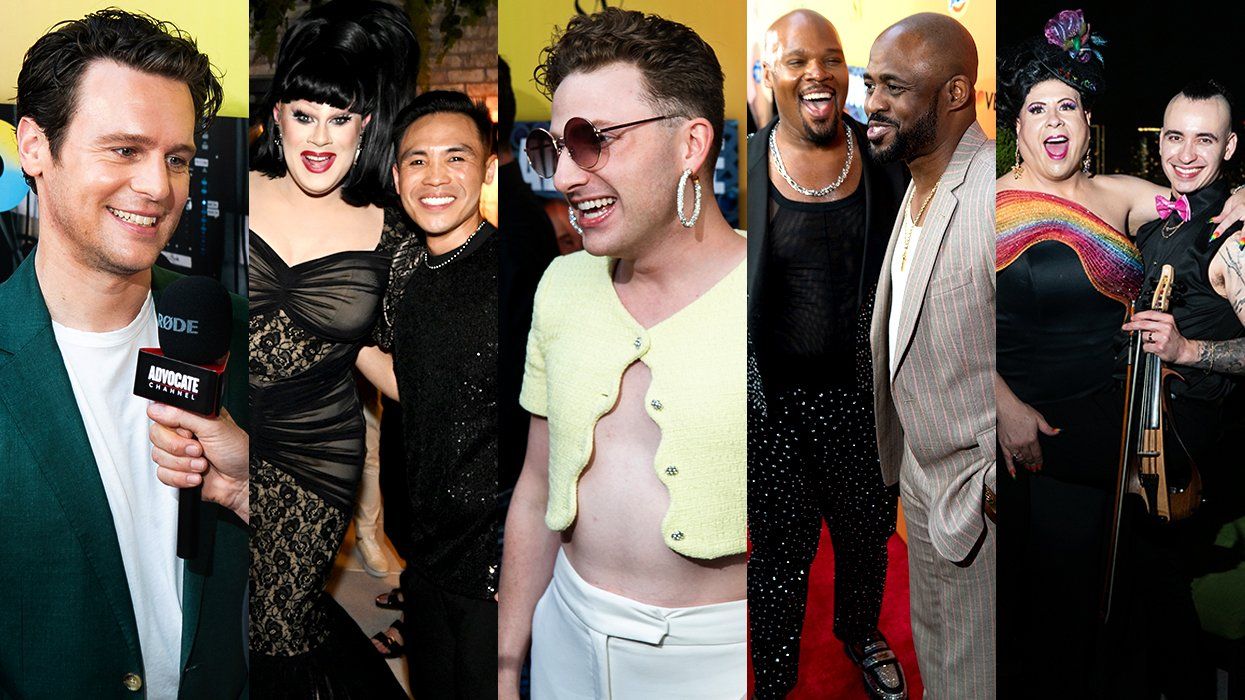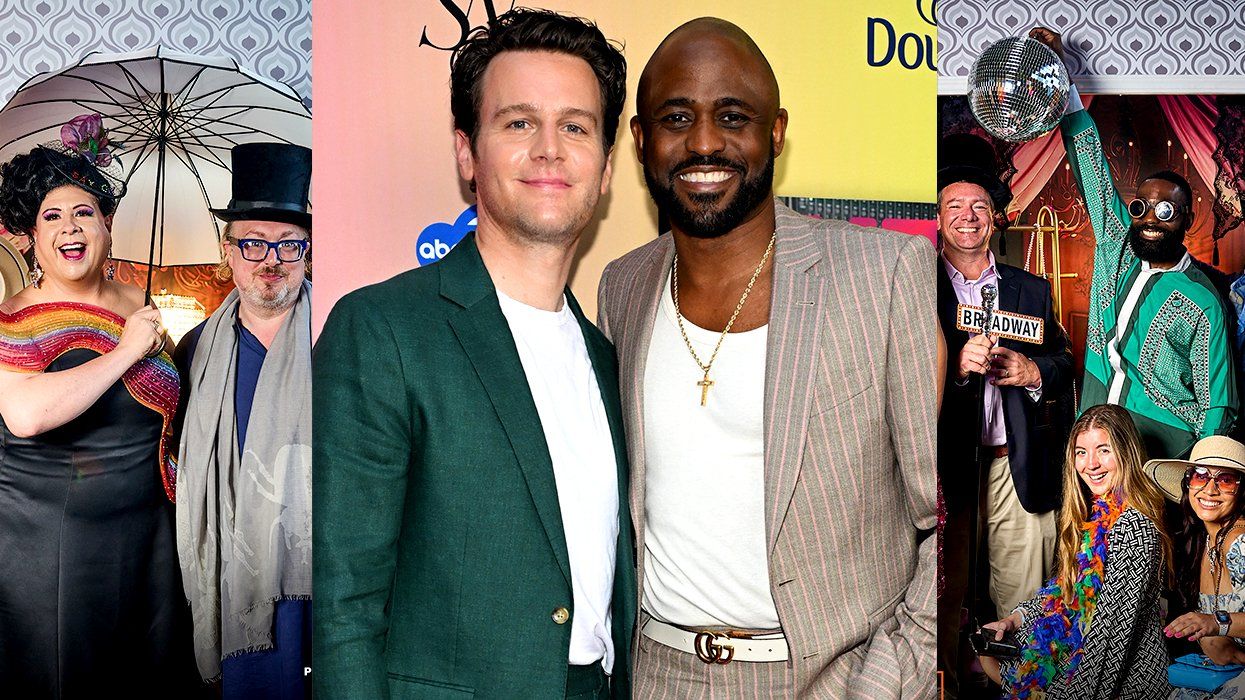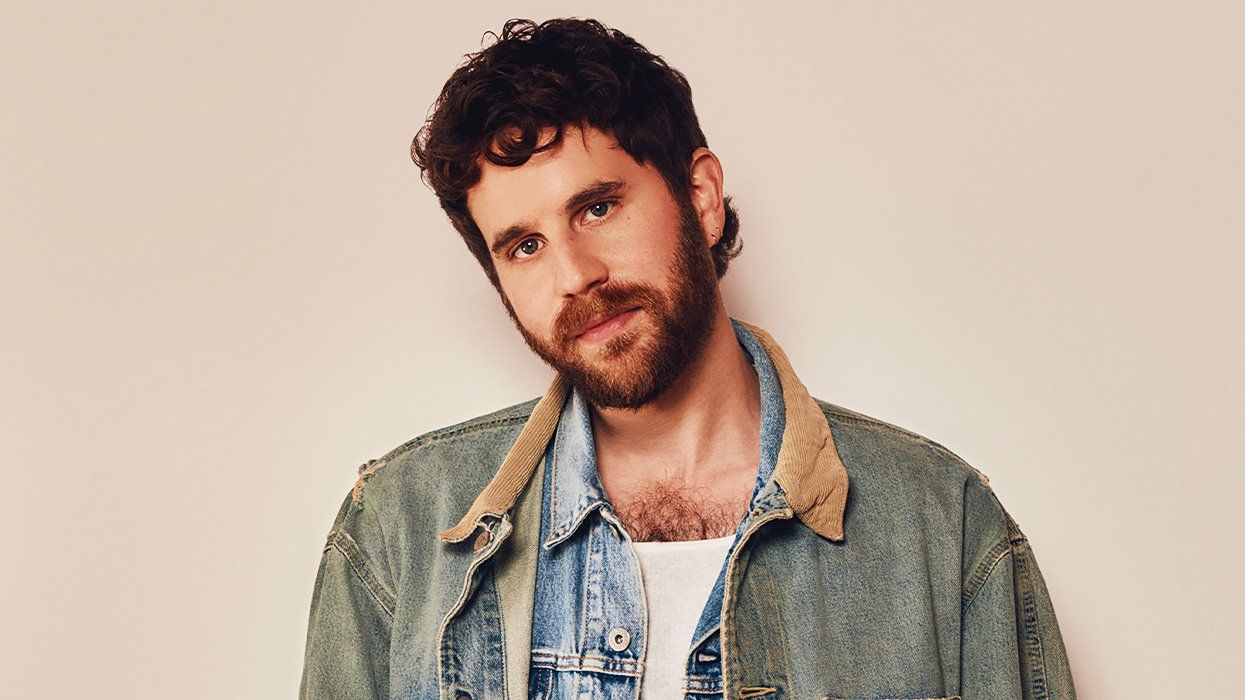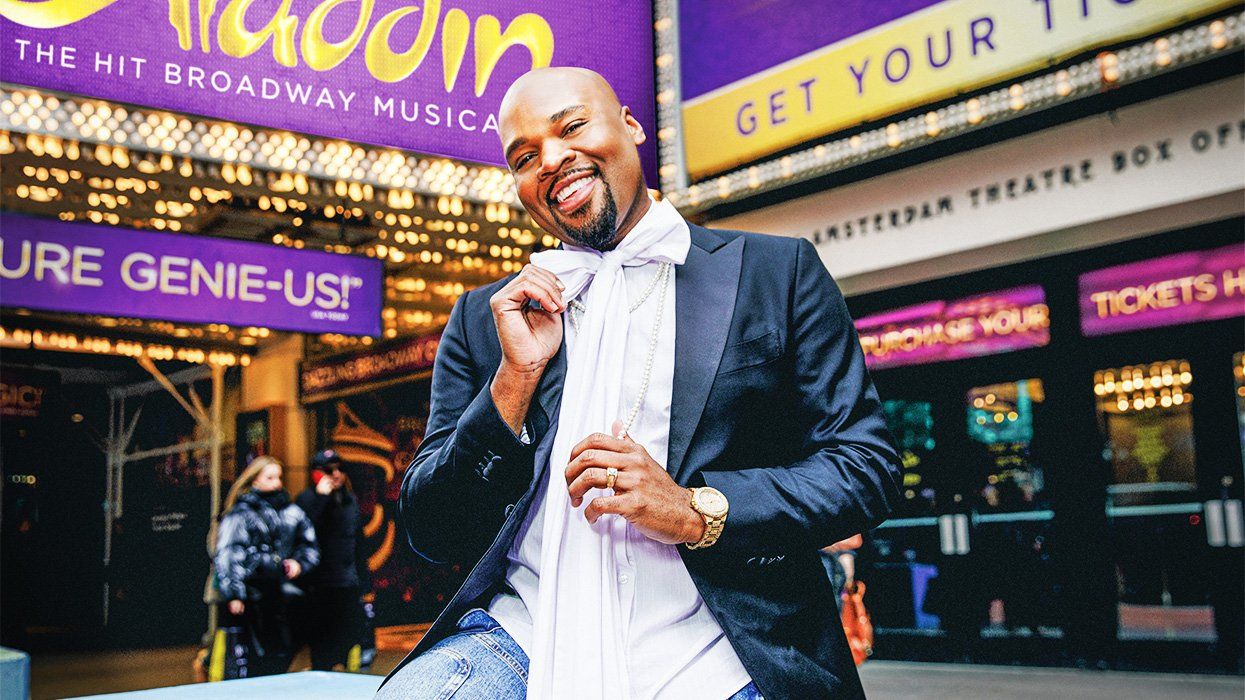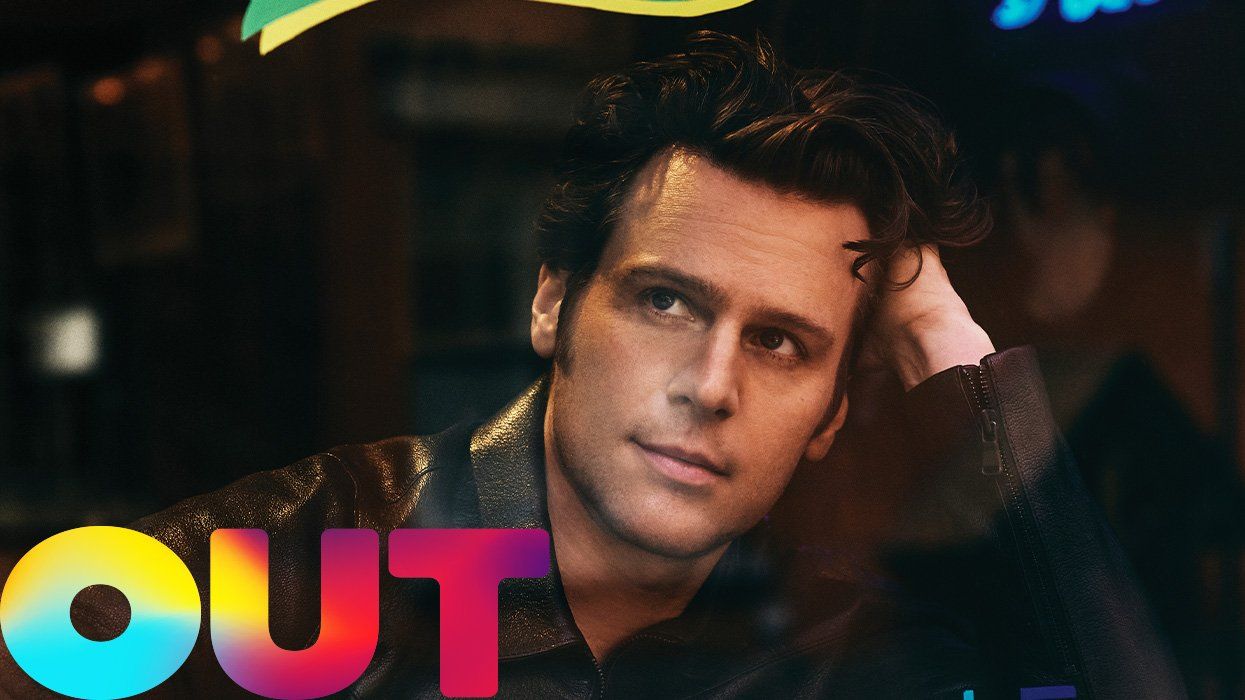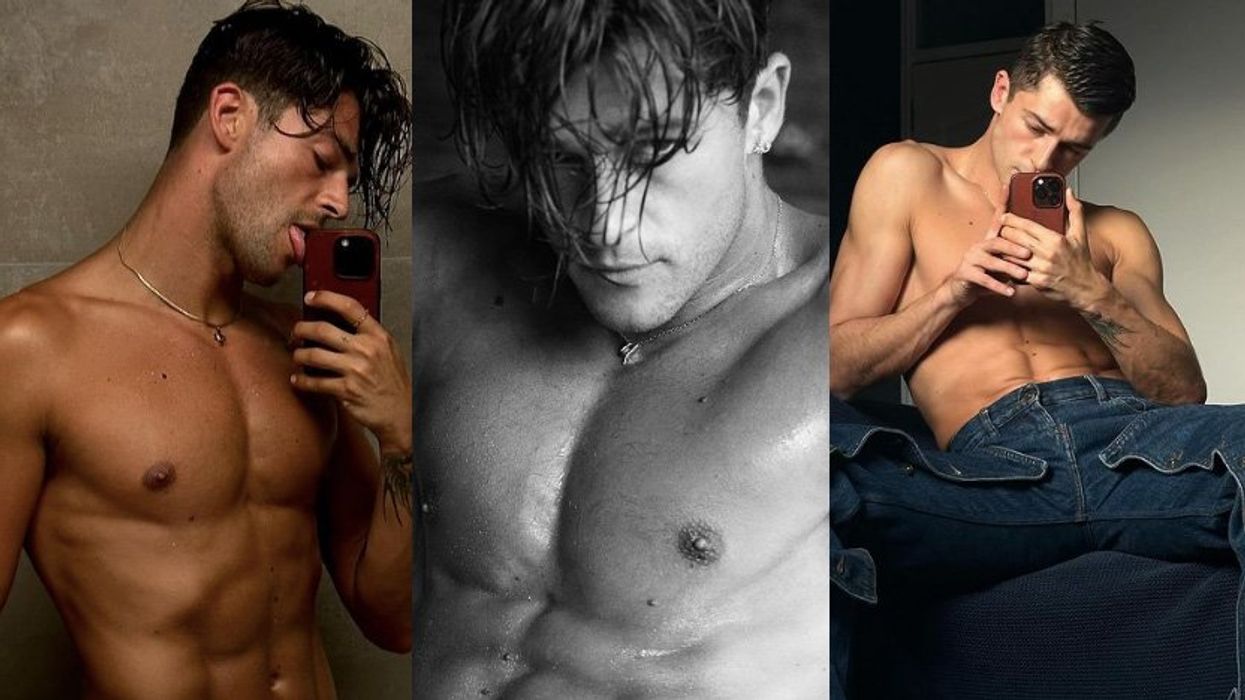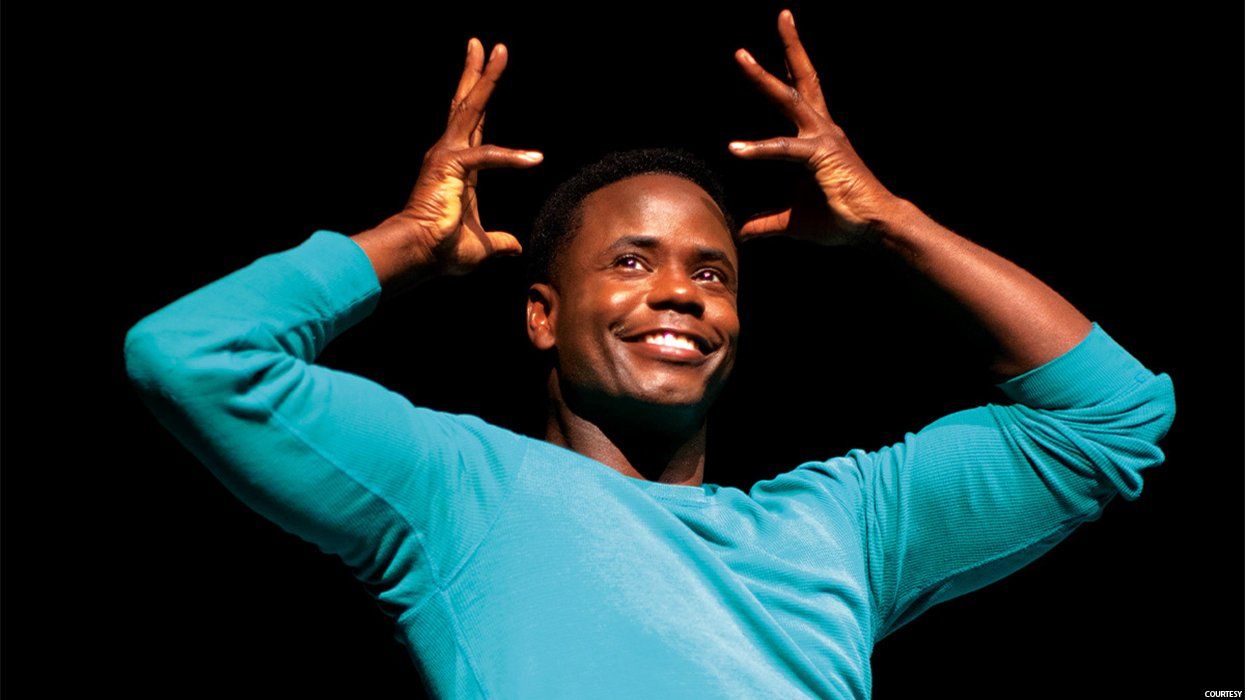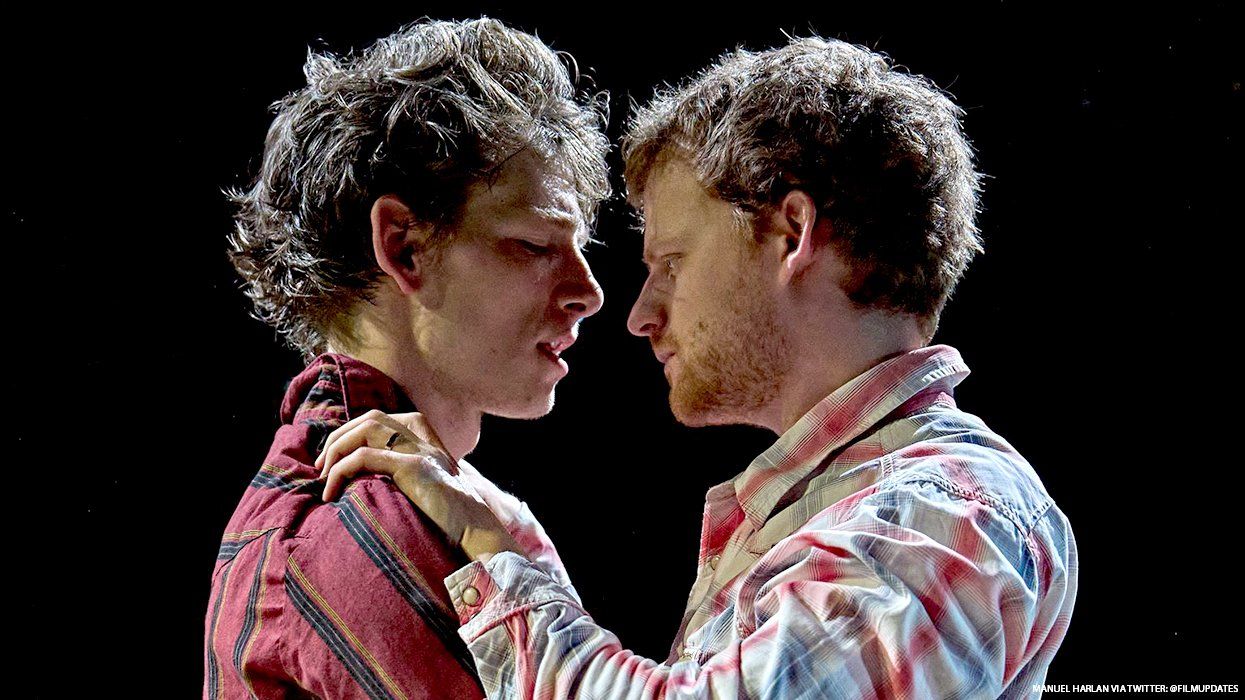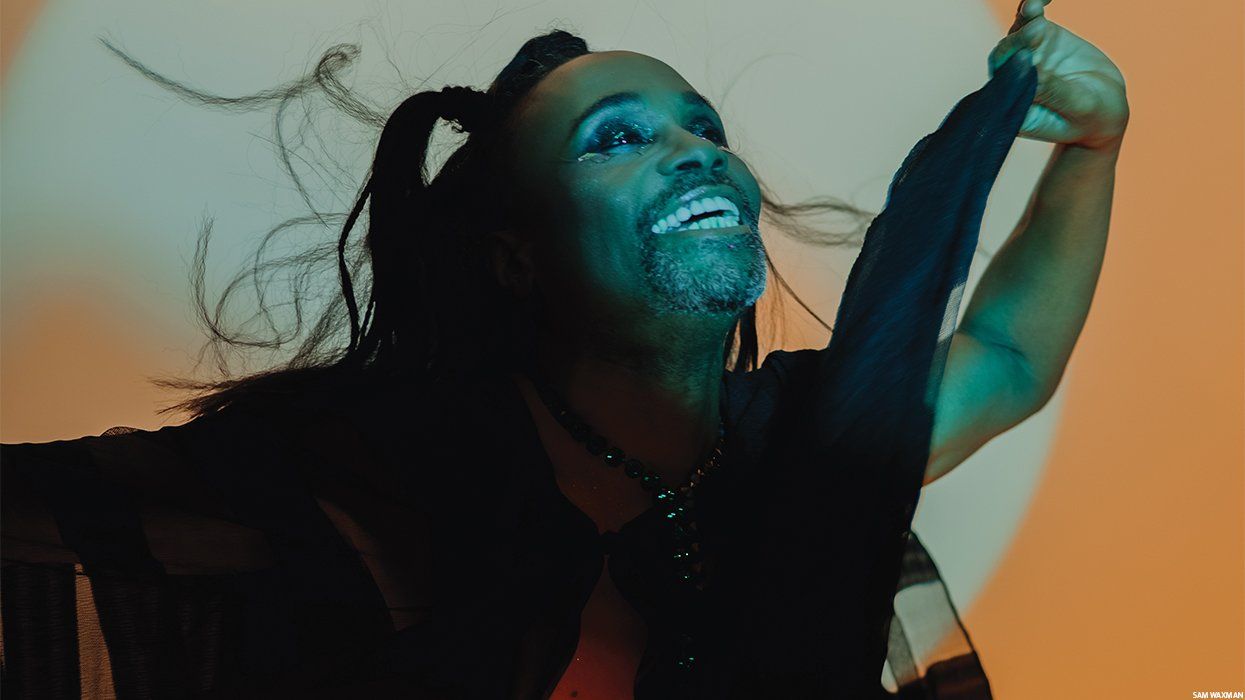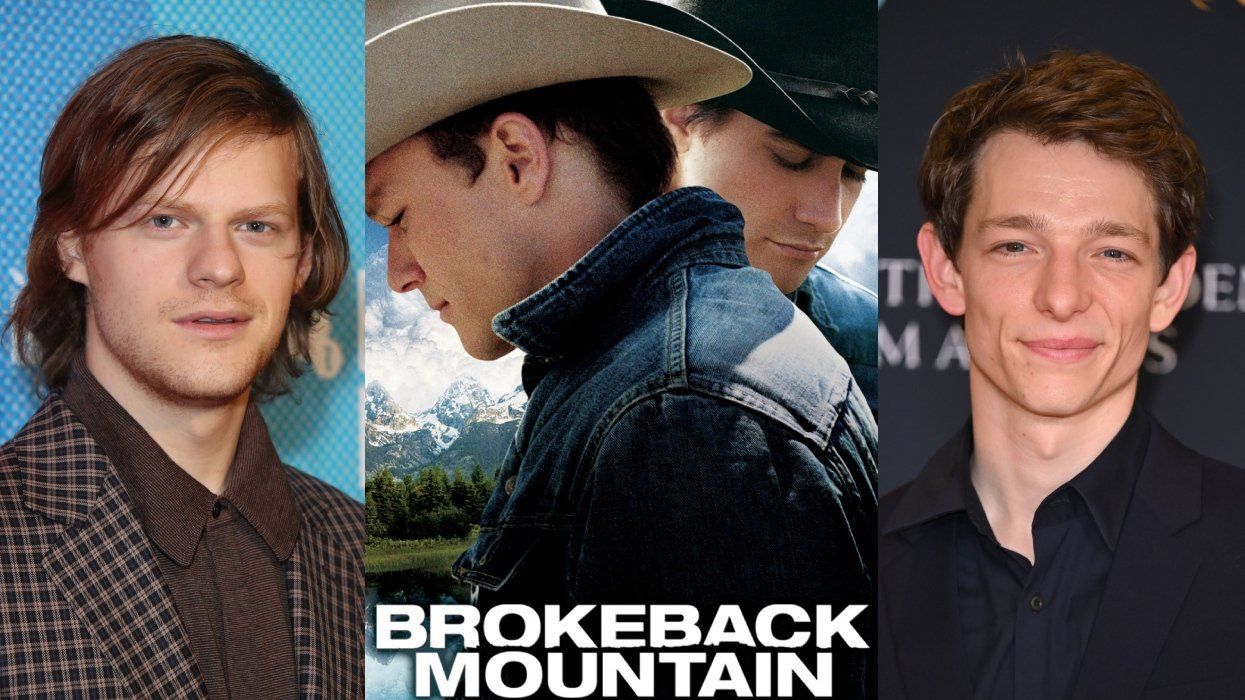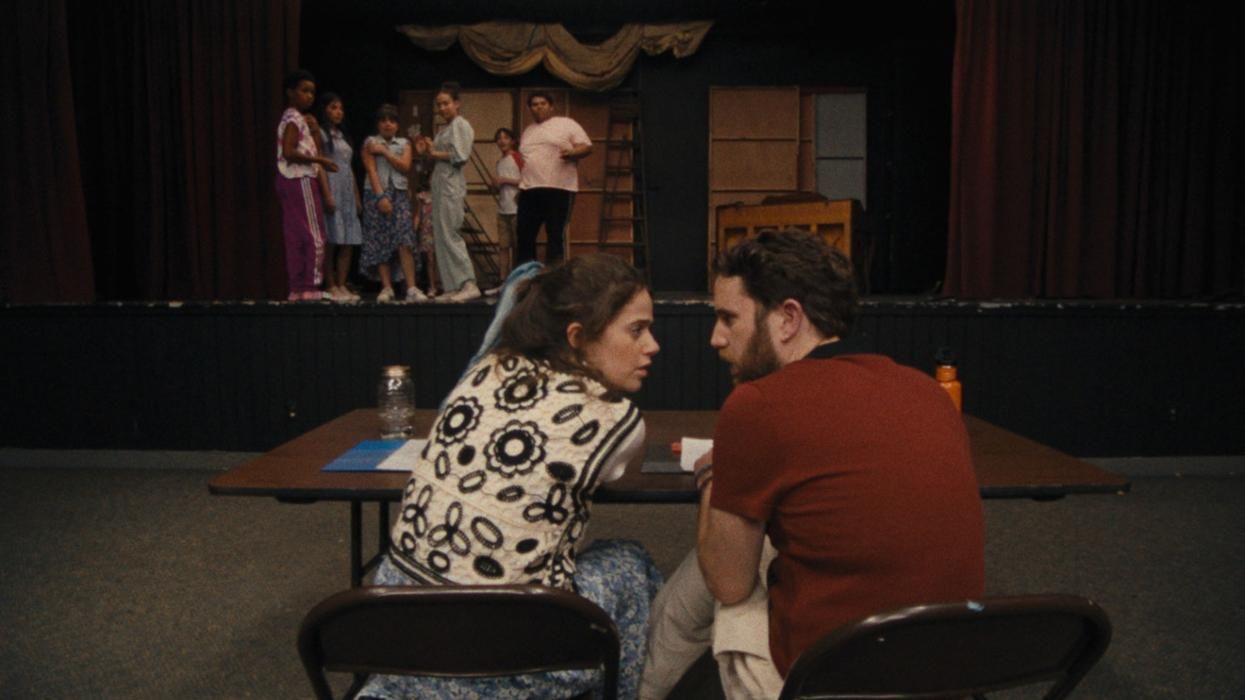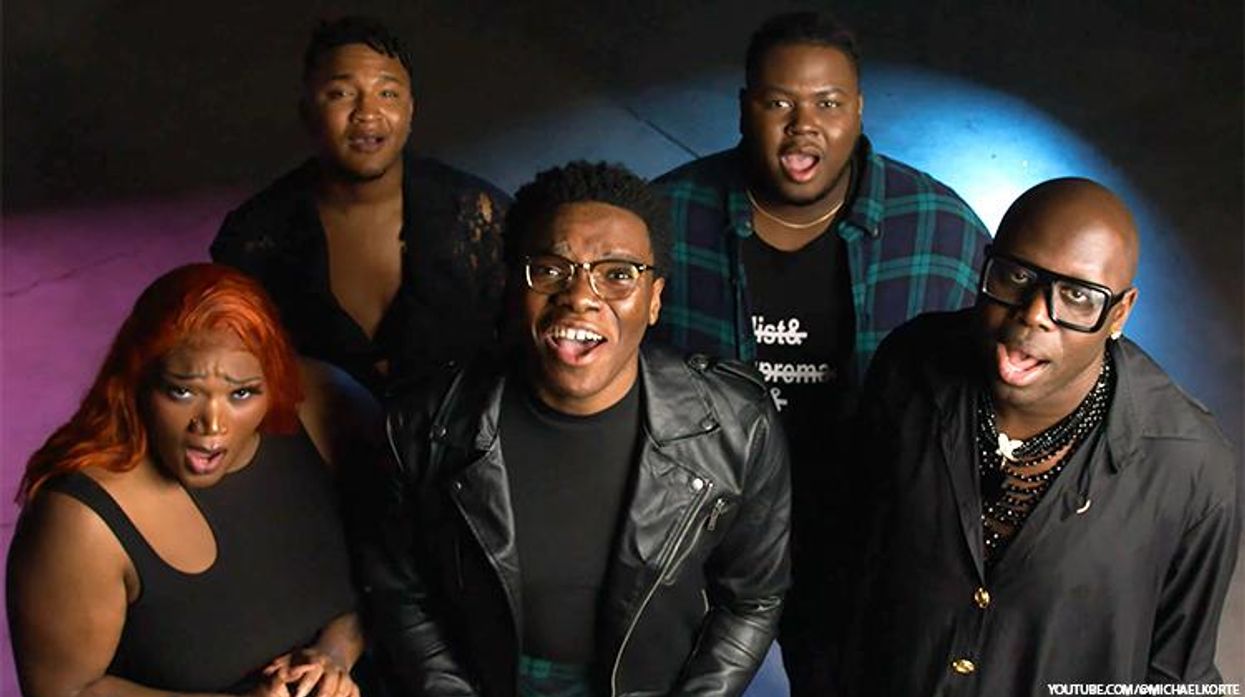Reverberation, a provocative new play now running through March 15 at the Hartford Stage, opens, so to speak, with a bang. Starring gay actor Luke Macfarlane (Brothers and Sisters) and first-time talent Carl Lundstedt, the New York-set drama puts sex at the forefront, but not, as Matthew Lopez tells it, for salacious reasons.
This modern study of intimacy takes us deep into the lives of Jonathan (Macfarlane), his lover Wes (Lundstedt), and his neighbor Claire (Aya Cash), who are drawn to each other for reasons that, given the production's dollhouse set design and voyeuristic presentation, are apparent to the audience long before they are to the characters. Having experienced his characters' ups and downs as a longtime gay New Yorker, Lopez dishes on his inspirations and his process.
Out: What's the reaction to Reverberation been like so far?
Matthew Lopez: It's been funny--every time you do a new play, I think you just sort of prepare for the slaughter. [Laughs.] I can't speak for any other writer, but it's the most terrifying thing in the world to premiere a new play. I've done second or third productions of plays, and you have the experience behind you to guide your expectations. But with a brand new play, you have no sense of how it's going to go. And because this play is very intimate and told in such an intimate way, there was a very high probability that viewers would reject it wholesale. Instead, it's been astonishing. From the first few moments of the very first preview, the audience has demonstrated that they are willing to come along for the ride, and that they were interested in our story. As we've gotten better with telling the story, the audiences have responded in kind. They're having strong emotional reactions to the play, they care very deeply about the characters. They're willing to go to the darker places that the play goes, because I think they trust us.
Well let's talk about those first few moments, because you made a choice to really pull people in, in a very dramatic way, with a graphic gay sex scene. Were you trying to challenge yourself in addition to challenging the audience?
Well, it is a very tastefully done graphic sex scene. You realize the power the lighting designer has when you stage a sex scene in the theater. The lighting designer is your cameraman and your editor as well. He can really direct your eyes to where you want the audience's eyes to go. When I started to write the play, I knew that the first was going to be post-coital. It was going to take place after a Grindr hookup, and originally it just began with them lying there in bed. Then as I started to delve into the way we tell our story, and the visual vocabulary of the play, I realized that there was no other way [than to show them having sex]. If you fudged it at the beginning, the audience wouldn't trust you for the rest of the play. And the ultimate goal, really, was to make the audience feel like voyeurs. We just had to show it to them, and really put the audience in a mindset of peeping through the windows at these intimate lives. So, I was thinking about how you begin this play about intimacy and voyeurism. It just began to make total sense to begin with sex, because that's the story. It was never meant to jolt the audience. It was never mean to be prurient. It was just supposed to be our way of communicating to the audience that they are going to see everything. The audience gets very silent at the very top of the play, which is very hard to accomplish. To get 500 people in one space make no sound? It's incredible.
Carl Lundstedt and Luke Macfarlane | Photo by T. Charles Erickson
During the climax?
In the last minute of sex, the actors are in that bed pumping away for about 45 seconds before there is an orgasm, and we slowly bring the lights up. It's dimly lit, but it's really the sound. The play is set upstairs and downstairs--it's a two story set, and you see both apartments. There's a bit of a Rear Window-like quality for the audience. The audience all becomes Jimmy Stewart in that way. Living in New York City, I've heard my neighbors having sex before and I've probably been overheard having sex myself.
Did Rear Window inspire you at all?
I think it inspired the designers more than me, the Rear Window idea, but it isn't even the sex that really gets the audience's attention. It's the nudity afterwards. The visual vocabulary of the play is that we're going to be incredibly honest, so, after they have sex, one of the actors walks around the apartment naked for about five or six minutes. If he had put his clothes on immediately it would have been phony. What's been amazing is that it feels like the audience has responded with gratitude. They accept that they are seeing the truth. It begins to sound a bit over-theoretical, but it's been amazing. The actors tell me it's an incredibly grounding way to start a play. I've written plays in which actors feel like they have to walk up on that stage and feel alive in the world. This is sort of the way of easing these two actors into the play.
That sounds ironic, given the circumstances.
They both said it's grounding. Luke can speak with a lot more authority to the subject than I can, but I remember the first day that we did the rehearsal with nudity. Carl was just like, "Oh, well here goes nothing, let me just drop trou in this rehearsal." He told me later, there was literally nothing to hide behind and so you have no other option but to just be honest.
Can you talk a bit more about Carl and Luke's dynamic?
You're dealing with two actors in two very different places in their careers. Luke has been doing this for 15 years. He's a Juilliard-trained actor who worked in theater right out of school and went off to do Brothers and Sisters for six years. He has extensive film and television credits. He is a pro. Carl just graduated undergrad in the spring. This is his first professional job--literally the first job he got out of college. There are so many levels of interaction between the two of them, that actually watching it unfold as the playwright, in the room everyday, led to a more honest exploration of the dynamic between the characters. It was fortuitous.
You have Luke, who has done this a lot and is very, very accomplished and professional, and you have Carl who is learning how to be a professional. He's also straight. It was really interesting to teach him how to be a bottom. I should probably not mention that! [Laughs] But Carl did not need any hand-holding in how to be a professional actor. He's an incredibly capable young man. Actors are either going to trust each other or they're not, and I think Carl and Luke decided to trust each other early on, which was a smart decision.
Did you have them rehearse the opening scene first?
Yeah, that was the first thing they staged, but they can obviously speak more authoritatively to that process now. The last thing you want when you're staging a love scene is for the playwright to be hovering about. I usually tend to skip the staging process throughout the play. I don't like watching my plays getting staged. I compare it to being told I'm going to become a grandfather. I'm very excited by the news and very eager to meet my new grandchild, but I don't need to watch you have sex with my daughter. [Laughs] I like to come back after it's all been mapped out and then begin to watch it in that form.
I know you have a strong interest in the Civil War era and American history, hence the subject matter of The Whipping Man. Beyond being a gay man, where did the inspiration for this story come from on a personal level?
There was a little bit of a challenge for myself. Before this I had written two plays, The Whipping Man and Somewhere. One was set in 1865 and the other was set in 1959.
Writing a contemporary play was important to me, and I didn't want to be seen as the guy who writes those plays that were set before most us were born. I wanted to see what I had to say. I think there are a lot of themes in the play that come from different parts in my life.
The questions of loneliness and isolation are not anything that's unique to my experience, but they are my own personal observations on them. At the end of the day, this is a play about intimacy, which has changed a lot in the last 10 years. The way we become intimate with one another and the way we remain intimate with one another has changed. I've said this before in other interviews, but if an alien race were to observe us, at least in the first world, they would see us as so isolated from one another--staring into these little light boxes, the glow from our phones on our faces.
At any play, hundreds of people are about to have a communal experience, and yet they're so isolated from one another because the majority of them are on their phones before the show starts. It's a particularly 21st century kind of isolation, when you are sitting next to someone and not interacting with them, but you are interacting with someone who may be thousands of miles away. That looks like progress, the next frontier, but I just wanted to explore my own feelings about what that does to our ability to interact with a person next to us, upstairs to us, or down the block from us.
Let's talk about the female character, Claire, played by Aya Cash. How did she come to be when you were conceiving this story, and what purpose did you want her to serve amid the dynamic of the three?
Well I was sort of openly playing with the Holly Golightly figure--this Audrey Hepburn person who lives upstairs, without Mickey Rooney on the first floor. We are playing with the archetype of the delightful woman who thrills the gay man. That is not something that we aren't aware of as an element of the play. We openly embrace that, you know? It's part of the DNA of the play, but I hope that we subvert it fairly quickly by really requiring Claire and Jonathan to have just the same kind of intimacy as is required by the gay characters in the play. These are characters that are taught by their circumstances not to trust anyone, but they are so profoundly lonely. And you see them both in their private living spaces simultaneously, and you can see in an instant their isolation and their loneliness. So, when they cling to one another we understand it. We are not attempting to just do Will & Grace on stage, we are exploring any and all kinds of intimacy
This is going to sound like a cliche question, but it seems necessary to ask someone who makes a play dealing so closely with social media and isolation about the medium he works in. Theater preserves that immediate contact experience from which new technology supposedly detracts. Do you feel a certain artistic responsibility to work in a non-isolating world?
I mean, I think one of the last vestiges of the old world, is sitting in a theater. That is why, for me, there is something incredibly disruptive about a cellphone going off in the middle of a performance. You recognize that there is something incredibly unique about any particular performance of any particular play, and it will never be the same way again. There is something wonderfully ephemeral about it. You cannot capture it again. It cannot be repeated. It's over as it's happening. You can do the play again the next day, but you have a new audience. Your actors are a day older than they were yesterday, and whatever experience they've had in the last 24 hours might influence what you see. If they have indigestion--anything can influence them. The same is true for the audience. There's nothing more intimate than a relationship between an actor and audience. Whether or not we're able to articulate it, or comprehend it, there is something very precious about that interaction. It doesn't happen when you're seeing a movie. It doesn't happen when watching a TV show. As much as you love Meryl Streep, you're not there when she's giving her performance. She's not there when you're watching her performance. But if you've ever seen her on stage, you're there and she's there at the exact same time at the exact same place. You're in a room with Meryl Streep or you're in a room with Luke Macfarlane. They are nowhere else in the world, but there with you, in that moment. That's what makes it exciting and that's what makes it rare and special.



